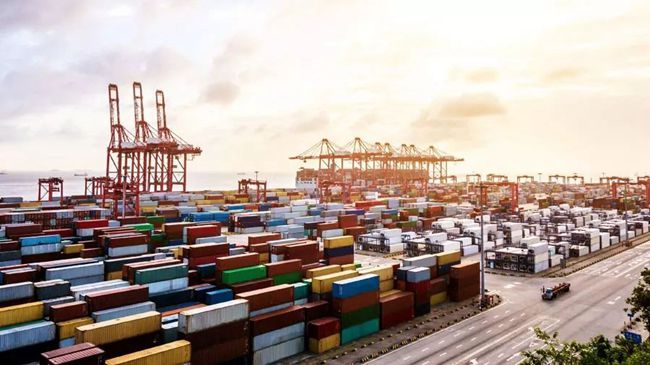"The Party Central Committee attaches great importance to the construction of free trade zones and free trade agreements, and the circle of friends of China's free trade zones has been expanding since the 18th National Congress, and has initially established a network of free trade agreements based on the periphery, radiating 'one belt and one road' and facing the world." Wang Shouwen, international trade negotiator and vice minister of the Ministry of Commerce, said at a press conference at the State Information Office recently that before the 18th National Congress, China had built 10 FTAs with 18 free trade partners, and in the ten years since the 18th National Congress, China has added 9 FTAs and 8 free trade partners.
The reporter learned that some new progress was made in the construction of China's FTAs last year. China and Cambodia FTA, New Zealand FTA upgrade protocol has entered into force; and Nicaragua signed the FTA early harvest arrangement, and with Nicaragua to start free trade agreement negotiations; and ASEAN free trade area version 3.0 negotiations have also begun; and the six Gulf countries GCC FTA negotiations have made positive progress. And the world's largest free trade area, RCEP, set sail last year. After these FTAs came into effect, they have played a very important role in promoting China's foreign trade. Last year, the import and export volume between China and its FTA partners reached RMB 14.25 trillion, up 7.7% year-on-year, accounting for 34% of total foreign trade.

Wang Shouwen said that China has also made progress in actively promoting accession to high-standard economic and trade agreements. The Comprehensive and Progressive Trans-Pacific Partnership Agreement (CPTPP) and the Digital Economy Partnership Agreement (DEPA) are two agreements that represent the highest international standards in the field of economic and trade rules. For the CPTPP, China has engaged and exchanged with its members at different levels and extensively. For DEPA, China has also had very good communication with its members. On 18 August last year, DEPA decided to set up a working group for China to join, and in November last year, the three DEPA members and China held a quadripartite ministerial meeting, and in December last year, the quadripartite held a kick-off meeting for chief negotiators. In addition, China attaches great importance to the construction of the Asia-Pacific Free Trade Area (APFTA) and supports the promotion of some work plans within the framework of APEC to push the APFTA forward.
The second tenth session proposed to "expand the global network of high-standard free trade zones". Last year's Central Economic Work Conference also stressed that "we should actively promote accession to CPTPP and DEPA and other high-standard economic and trade agreements, and take the initiative to deepen domestic reforms in relevant areas against relevant rules, regulations, management and standards".
"In this regard, we are prepared to take a series of measures to put the spirit of the 20th Party Congress into full effect." Wang Shouwen said, firstly, to seek progress in a stable manner and improve the comprehensive utilization rate of existing FTAs. Last year, the comprehensive utilization rate of 19 FTAs was close to 80%, and some FTAs exceeded 98%, but the utilization rate of some FTAs is still relatively low, so a series of measures should be taken to guide enterprises through training to put these FTAs to good use and play their role well, making a better basis for expanding the global network of high-standard free trade zones.

Secondly, this year, we should comprehensively promote the China-ASEAN FTA 3.0 negotiations and create new highlights such as the digital economy and green economy. In February this year, China has completed the FTA negotiations with Ecuador and aims to formally sign it into effect this year. We will strive to complete the FTA negotiations with Nicaragua this year. Continue to push forward the FTA negotiations with the GCC, Israel and others. There are also some FTA upgrade negotiations with Peru, South Korea and Singapore to achieve good results.
Third, China will continue to promote the process of joining CPTPP and DEPA. In terms of CPTPP, China will take the initiative to deepen domestic reforms in relevant areas in line with the rules of CPTPP. A series of arrangements have also been made in respect of DEPA, including specific ministerial-level negotiations and arrangements for negotiations at the department and bureau levels, with a view to China taking substantive steps towards accession to the DEPA agreement. At the APEC level, we will continue to promote the construction of the Asia-Pacific Free Trade Area and work with all parties to promote regional economic integration.

